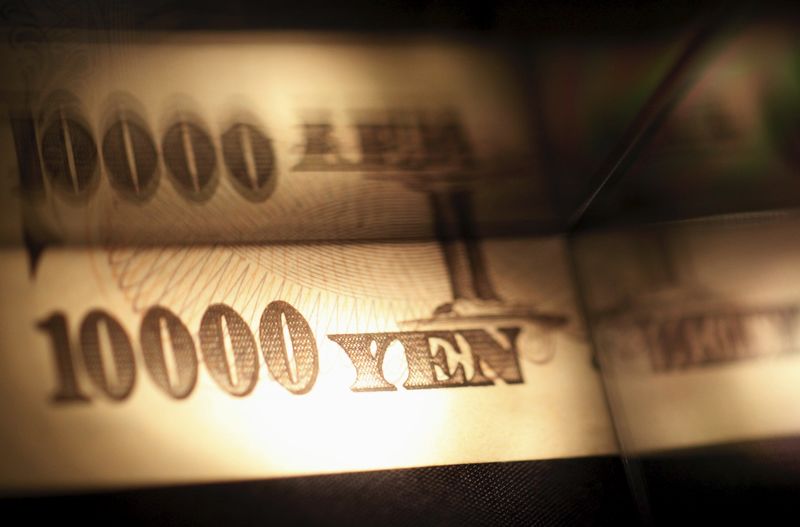BofA warns Fed risks policy mistake with early rate cuts
By Ambar Warrick
Investing.com-- Most Asian currencies crept lower on Thursday as optimism over loosening anti-COVID curbs in China was offset by mixed economic signals from Japan and uncertainty over a U.S. recession.
China on Wednesday announced its biggest yet relaxation of COVID restrictions, dropping several movement curbs and testing mandates in a sign that Beijing intends to further relax its strict zero-COVID policy in the coming months.
The move triggered some gains in Asian markets in the prior session. But given that China is still struggling with record-high daily increases in COVID-19 cases, investors remained uncertain over when Beijing will announce a full reopening.
Chinese inflation data for November, due on Friday, is now expected to shine more light on the world’s second-largest economy.
The Chinese yuan fell 0.1% on Thursday after rising 0.4% in the prior session.
The Japanese yen fell 0.3%, reversing mild gains from Wednesday after data showed that the country logged an unexpected current account deficit in the third quarter, amid waning exports and more expensive imports.
But the country’s third-quarter GDP was revised a shade higher, making its contraction slightly less than initially estimated. This showed that some facets of the Japanese economy, particularly business and consumer spending, remained robust.
But the country faces continued headwinds from a weakening yen and rising inflation, which is expected to trend around 40-year highs in November.
Broader Asian currencies retreated slightly, with the South Korean won and Singapore dollar losing 0.4% and 0.2%.
The Indian rupee fell 0.2% and hovered near a one-month low, even as the Reserve Bank raised interest rates this week and signaled that more monetary tightening was in order.
The U.S. dollar steadied on Wednesday from mild losses in the prior session. The dollar index rose 0.2%, while dollar index futures added 0.2%.
The greenback was headed for its first positive week in three as stronger-than-expected U.S. economic data signaled that inflation may take longer than expected to cool.
This brewed concerns that the Federal Reserve could keep hiking interest rates well into 2023, a scenario that market participants warned could result in a U.S. recession.
While the Fed is expected to hike rates by a relatively smaller margin next week, it has warned that rates could peak at higher-than-expected levels if inflation remains sticky.
U.S. producer inflation data due on Friday is expected to provide more clarity on U.S. inflation.
